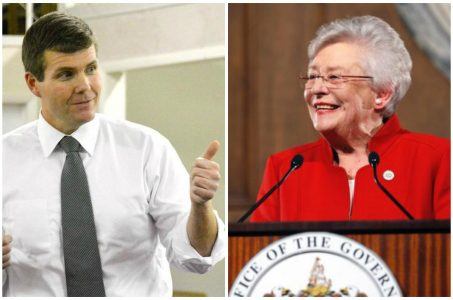Hawaii Says Aloha to Another Lottery Plan as State Senator Keith-Agaran Gives Old Bill Another Go
Posted on: January 27, 2020, 10:23h.
Last updated on: January 27, 2020, 12:15h.
Hawaii state Sen. Gilbert Keith-Agaran (D-Kahului) is rehashing a plan to bring a lottery to one of the most anti-gambling states in the US.

In the recently started legislative session, the lawmaker proposed Senate Bill 2669 (SB 2669) and his Senate Bill 850 (SB 850) was carried over from last year. The two bills are essentially identical, with the newest being co-sponsored by Sen. Dru Kanuha (D-Kona).
SB 2669 establishes the Hawaii lottery and gaming corporation for the purpose of conducting gambling in Hawaii,” according to a summary of the proposal.
If approved, the legislation would also direct “proceeds to capital improvements at public schools and the University of Hawaii system, scholarships and educational loan repayments for medical students who practice in Hawaii for ten years, support for the family practice rural residency program, watershed protection, and reduction and prevention of problem gambling.”
Bill Details
Keith-Agaran’s proposal would set up the Hawaii Lottery and Gaming Corporation, which would act as the regulatory agency for legitimate gaming activity throughout the state. As is the case with politicians in other states pushing gaming expansion, Keith-Agaran is looking to direct lottery cash toward education in the Aloha State.
Assuming SB 2669 is signed into law, the gaming corporation would direct a quarter of proceeds to shore up education shortfalls, 20 percent for Hawaii Department of Education (DOE) enhancements, and another 20 percent would be directed to the University of Hawaii for capital improvements, reports The Hawaii Tribune-Herald.
Off the remaining 35 percent, 10 percent would be directed to scholarships and student loan repayment for medical school graduates agreeing to practice in Hawaii for at least a decade, and another 10 percent would be allocated to rural medical initiatives.
Another 15 percent would be devoted to environmental projects, administrative costs, and programs for problem gamblers.
Long Road Ahead
Hawaii is one of just two states – Utah is the other – that has no form of legalized gambling. The effort to bring a lottery and scratchers to the island state isn’t new. It’s something that has been tried in various legislative sessions dating back multiple decades, only to be defeated every time.
It’s widely believed that even if a lottery bill makes it out of both houses of the state’s legislature, which would be no small feat, Gov. David Ige (D-HI) would veto it upon arrival to his desk.
Ige has long argued against a lottery and other forms of gambling as a means of boosting state receipts because, in his view, startup costs are significant and the money residents would spend on lotto tickets would be pulled from other parts of the economy, providing no net benefit.
It’s a familiar refrain in smaller states with limited gambling options where some politicians are seeking expansion. Lawmakers aren’t shy about pushing for casinos, lotteries or sports betting, among other related activities, but politicians from both parties are often reluctant to buck a state’s long history of anti- or limited gambling stances.
Related News Articles
Alabama Daily Fantasy Sports Bill Throttled to Death on Senate Floor
Lottoland Denounces Australia’s Bill to Ban Secondary Lotteries
Alabama Democratic Gubernatorial Challenger Embraces State Lottery
Mississippi Lottery Commences Operations, Only Five Non-Lottery States Remain
Most Popular
Mirage Las Vegas Demolition to Start Next Week, Atrium a Goner
Where All the Mirage Relics Will Go
Most Commented
-
Bally’s Facing Five Months of Daily Demolition for Chicago Casino
— June 18, 2024 — 12 Comments
















Last Comments ( 2 )
The governor's arguement is weak. Furlough of State employees and borrowing from the Federal Government will only put Hawaii further behind the fiscal curve. How much does it actually cost to set-up vs the benefits the State will reap. Plus, maybe the rail project can be completed.
MEGAMOLLIONS POWERBALL. Lottery are great the give away billions and billions of Dollars the state of Hawaii can used that every year the raise the General incom tax to get money out of people the HART RAIL Going to cost another billions of Dollar were is that money going to come from it’s going to come from somewhere Public school ferlough